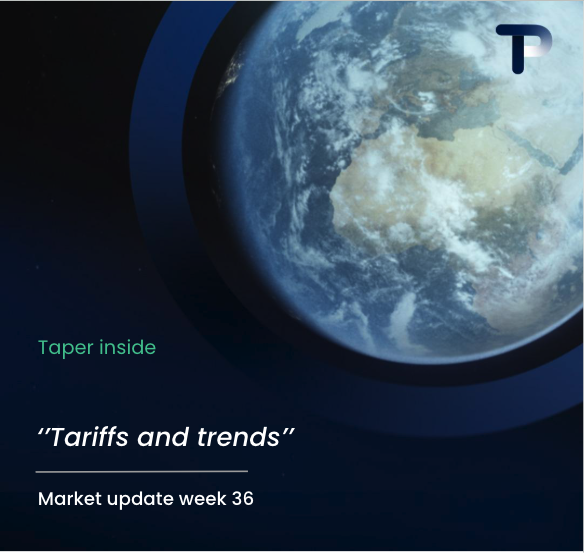Trade finance services for multi-currency payments are specialised financial solutions that help businesses manage international transactions across different currencies. These services combine traditional trade finance instruments like letters of credit with modern multi-currency payment systems, enabling companies to send and receive payments globally whilst managing currency risks and reducing transaction costs.
Understanding trade finance services in today’s global marketplace
Trade finance services form the backbone of international commerce, providing the financial infrastructure that enables businesses to trade across borders with confidence. These services bridge the gap between buyers and sellers in different countries, offering payment guarantees and risk mitigation tools that make global trade possible.
For small and medium enterprises (SMEs) engaged in international trade, multi-currency payment solutions have become particularly important. Traditional banking often involves high fees, poor exchange rates, and lengthy processing times that can strain cash flow and competitiveness.
Modern trade finance services address these challenges by combining established instruments like documentary credits with innovative payment technologies. This integration allows businesses to access multiple currencies through single platforms, reducing the administrative burden of maintaining separate foreign bank accounts.
The evolution towards digital trade finance platforms has made these services more accessible to smaller businesses. Companies can now access the same sophisticated financial tools that were once reserved for large corporations, levelling the playing field in international markets.
What are trade finance services for multi-currency payments?
Trade finance services for multi-currency payments are comprehensive financial solutions that facilitate international trade by providing payment processing, currency exchange, and risk management tools across multiple currencies simultaneously.
These services typically include several core components. Letters of credit remain fundamental, providing payment guarantees that protect both buyers and sellers in international transactions. Documentary collections offer a simpler alternative, allowing banks to handle payment collection against shipping documents.
Currency exchange facilities form another crucial element, enabling businesses to convert funds at competitive rates whilst managing foreign exchange risk. Modern platforms often provide real-time exchange rates and forward contracts to lock in favourable rates for future transactions.
Multi-currency IBAN accounts represent a significant advancement in this space. These accounts allow businesses to receive payments in various currencies without maintaining separate foreign bank accounts, simplifying international payment collection and reducing banking fees.
Trade credit insurance and financing options complete the service offering, providing working capital solutions and protection against non-payment risks that are inherent in international trade.
How do multi-currency payment solutions streamline international trade?
Multi-currency payment solutions streamline international trade by consolidating multiple banking relationships into a single platform, reducing complexity whilst improving cost efficiency and transaction speed.
The primary benefit lies in cost reduction. Traditional banking often involves multiple intermediary banks, each charging fees for processing international payments. Multi-currency platforms typically offer direct routing and competitive exchange rates, significantly reducing the total cost of cross-border transactions.
Speed improvements are equally important. Modern payment systems can process international transfers within hours rather than days, improving cash flow management for businesses. Real-time tracking capabilities provide transparency that was previously unavailable through traditional banking channels.
Administrative efficiency represents another key advantage. Instead of managing relationships with multiple foreign banks, businesses can handle all their international payment needs through a single provider. This consolidation reduces paperwork, simplifies reconciliation, and frees up resources for core business activities.
Risk management becomes more sophisticated through integrated platforms. Businesses can access forward contracts, flexible hedging options, and dynamic currency solutions that help protect against adverse exchange rate movements whilst maintaining operational flexibility.
What types of businesses benefit most from trade finance services?
Small and medium enterprises engaged in regular international trade derive the greatest benefit from trade finance services, particularly those in import/export, e-commerce, manufacturing, and professional services sectors.
Import/export businesses represent the most obvious beneficiaries. These companies regularly deal with suppliers and customers in multiple countries, requiring efficient payment processing and currency management. Competitive exchange rates and streamlined payment processes can significantly impact their profit margins.
E-commerce businesses selling internationally face unique challenges with payment collection from multiple countries. Multi-currency IBAN accounts enable them to receive payments in local currencies, improving customer experience whilst reducing currency conversion costs.
Manufacturing companies with global supply chains benefit from trade finance services through improved working capital management. Access to trade financing can help bridge the gap between paying suppliers and receiving payment from customers, maintaining smooth operations.
Professional services firms, consultancies, and technology companies serving international clients often struggle with traditional banking limitations. Modern trade finance platforms provide the flexibility and cost-effectiveness these businesses need to compete globally.
Companies making regular international payments, regardless of size, can benefit from the transparency and cost savings offered by specialised trade finance providers compared to traditional high-street banks.
Key takeaways for choosing the right trade finance partner
Selecting the right trade finance partner requires careful consideration of regulatory compliance, service comprehensiveness, cost transparency, and the provider’s understanding of your specific business needs.
Regulatory compliance should be your starting point. Ensure your chosen provider is properly authorised and regulated by relevant financial authorities. Look for direct SWIFT network membership and appropriate payment institution licences that guarantee the security of your funds.
Multi-currency capabilities are fundamental for international businesses. Your provider should offer IBAN accounts in relevant currencies, competitive exchange rates, and flexible hedging solutions that match your trading patterns and risk tolerance.
Transparency in pricing distinguishes professional providers from traditional banks. Look for clear fee structures, real-time exchange rates, and no hidden charges that could impact your profitability.
Personal service and expertise matter significantly in trade finance. Choose providers who understand the complexities of international trade and can offer tailored solutions rather than one-size-fits-all products.
Technology integration capabilities ensure your trade finance solution can grow with your business. Modern platforms should offer API connectivity, real-time reporting, and user-friendly interfaces that simplify daily operations.
When evaluating potential partners, consider their track record with businesses similar to yours and their ability to provide comprehensive support throughout your international expansion journey. At TaperPay, we specialise in helping SMEs navigate the complexities of international trade finance with personalised solutions designed for growth-focused businesses.
Frequently Asked Questions
How long does it typically take to set up multi-currency IBAN accounts with a trade finance provider?
Most reputable trade finance providers can set up multi-currency IBAN accounts within 3-5 business days after completing the onboarding process. This includes account verification, compliance checks, and system configuration. Some providers offer expedited setup for urgent business needs, though this may involve additional fees.
What happens if exchange rates move unfavorably between when I quote a price and receive payment?
You can protect against adverse exchange rate movements by using forward contracts or flexible hedging solutions offered by your trade finance provider. These tools allow you to lock in exchange rates for future transactions, typically up to 12 months in advance, ensuring your profit margins remain protected regardless of currency fluctuations.
Can I use trade finance services if my business is just starting to trade internationally?
Yes, modern trade finance platforms are designed to support businesses at all stages of international expansion. Many providers offer scalable solutions starting with basic multi-currency accounts and payment processing, then adding more sophisticated tools like letters of credit and trade financing as your business grows and requirements become more complex.
What documentation do I need to provide when applying for trade finance services?
Typically, you'll need to provide company registration documents, recent financial statements, bank statements, details of your trading activities, and information about key directors. Some providers may also require trade references or examples of typical transactions. The exact requirements vary by provider and the complexity of services you're requesting.
How do I know if the exchange rates offered by my trade finance provider are competitive?
Compare the rates offered against the mid-market rate (available on financial websites like XE or Reuters) and check the margin being charged. Competitive providers typically offer rates within 0.5-1.5% of the mid-market rate. Also, look for providers offering real-time rate transparency and the ability to execute trades when rates are favorable.
What should I do if a customer disputes a payment or claims non-delivery after using a letter of credit?
Letters of credit operate on a documents-only basis, meaning payment is made against compliant documentation rather than actual goods delivery. If disputes arise, work closely with your trade finance provider and legal advisors to resolve the matter. Proper documentation and compliance with letter of credit terms from the outset significantly reduces the likelihood of payment disputes.
Are there any restrictions on which countries I can send payments to using trade finance services?
Yes, trade finance providers must comply with international sanctions and anti-money laundering regulations, which may restrict payments to certain countries or entities. Most providers maintain updated sanctions lists and will flag restricted transactions. It's important to check with your provider about any limitations that might affect your specific trading relationships before committing to their services.
Hi there! 👋 I see you're reading about multi-currency IBAN accounts for supply chain payments. Smart choice - these accounts can save businesses 2-4% on every international transaction!
What best describes your current situation with international supplier payments?
Which of these challenges are you currently facing with international payments? (Select all that apply)
What's driving your interest in multi-currency payment solutions? Tell us about your business goals or challenges.
Great! To help us understand your specific needs better, could you share more details about your international payment volume or any particular requirements?
Perfect! Let's connect you with one of our international payments specialists who can show you exactly how Taper's multi-currency IBAN accounts can save you money and streamline your supply chain payments.



